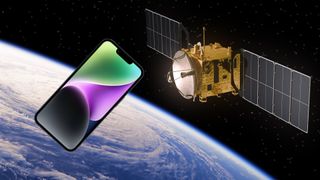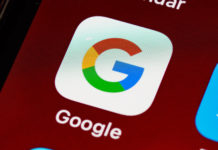Satellite connectivity is a marquee feature of every phone in Apple’s iPhone 14 lineup, but the US government has outlined new plans to make phone-to-satellite linking more accessible to more users in the near future.
As spotted by PhoneArena (opens in new tab), the Federal Communications Commission (FCC) has submitted a proposal that would allow mobile carriers like Verizon and AT&T to team up with satellite operators in order to provide mobile coverage in otherwise signal-less areas.
Right now, Apple’s partnership with satellite telecommunications company Globalstar allows its latest iPhones to establish connections with satellites through a feature called ‘Emergency SOS via satellite’ (which we’ve tested for ourselves). All four iPhone 14 models boast high-tech components that interact with Apple-owned ground stations, where staff are on hand to field emergency calls from users in the US, UK, Canada, France, Ireland and Germany.
In other words, the existing infrastructure for smartphone-based satellite connectivity is, for the most part, owned and operated by Apple, which is a reality the US government hopes to change.
Samsung is expected to debut comparable phone-to-satellite capabilities with its Samsung Galaxy S24 line next year, but again, the Korean company will use Qualcomm’s proprietary Snapdragon Satellite service to make that happen.
The US government, then, has proposed a system in which “non-geostationary orbit satellites [get] leases from terrestrial spectrum owners.” In layman’s terms, that means satellite companies and mobile carriers working together to provide coverage in areas without existing Wi-Fi or cellular coverage.
If the proposal is approved, new phones won’t need dedicated, Apple-style components to establish connections with satellites. Instead, the onus will be on mobile carriers to facilitate those connections.
Of course, mobile carriers will almost certainly charge higher fees for plans that allow for emergency satellite connection, but it’s exciting to think that such a premium smartphone feature – one currently reserved for the best iPhones and, more recently, the Motorola Defy 2 – could soon become more widely available.
It’s also worth noting that Apple hasn’t yet confirmed whether its ‘Emergency SOS via satellite’ feature will remain free to iPhone 14 users indefinitely. The potentially life-saving technology is currently available free-of-charge for two years, but Apple may opt to implement subscription fees or one-time charges for iPhone 14 owners using the feature after their ‘free trial’ periods have expired.
Apple’s decision on the above will likely steer the wider mobile industry’s approach to satellite connectivity. Satellites are expensive business, and phone manufacturers will surely discourage users from trying to communicate via satellite in anything other than emergency situations.
It’s great news, though, that more people might soon be given the option to make emergency calls when they need to.
Source: www.techradar.com










